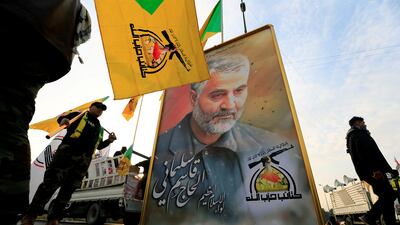The US on Wednesday blamed the attack that killed three US service members in Jordan on a pro-Iranian insurgent movement that operates in Iraq.
The Islamic Resistance in Iraq had already claimed Sunday's attack but the US had not confirmed its role in the drone strike that also wounded about 40 US troops.
“We believe that the attack in Jordan was a plan resourced and facilitated by an umbrella group called the Islamic Resistance in Iraq, which contains multiple groups including Kataib Hezbollah,” said John Kirby, White House National Security Council spokesman.
Kataib Hezbollah, a militia group that started as a small coalition of Iran-backed radicals during the chaotic years of the US occupation, has evolved into a powerful security force that operates in conjunction with the Iraqi government.
On Tuesday, the group released a statement in which they said they had decided to halt all military operations against the US, a move that was made to prevent any “any embarrassment” to the Iraqi government.
But the statement appears to have had little effect in Washington.
“With respect to Kataib Hezbollah … we will judge this group as we do all of these Iranian proxy groups, not by what they say but by what they do,” said State Department spokesman Matthew Miller.
He said any US response to Sunday’s deadly attack would “not be escalatory” but designed to stop what Washington regards as Iran-backed aggression in the region.
The Pentagon says at least 40 US service members were wounded in the attack, including eight who had to be medically evacuated.
Tower 22, a remote US outpost in north-east Jordan, near the border with Syria, was already a target twice in the past six months but those attacks were thwarted by air-defence systems.
US President Joe Biden has said that he has decided how he will respond to the attack, the first time US soldiers have been killed in the region since October 7, but has not disclosed any details.
Mr Biden is trying to balance deterring future attacks while avoiding a broader conflict in an already tense region.


